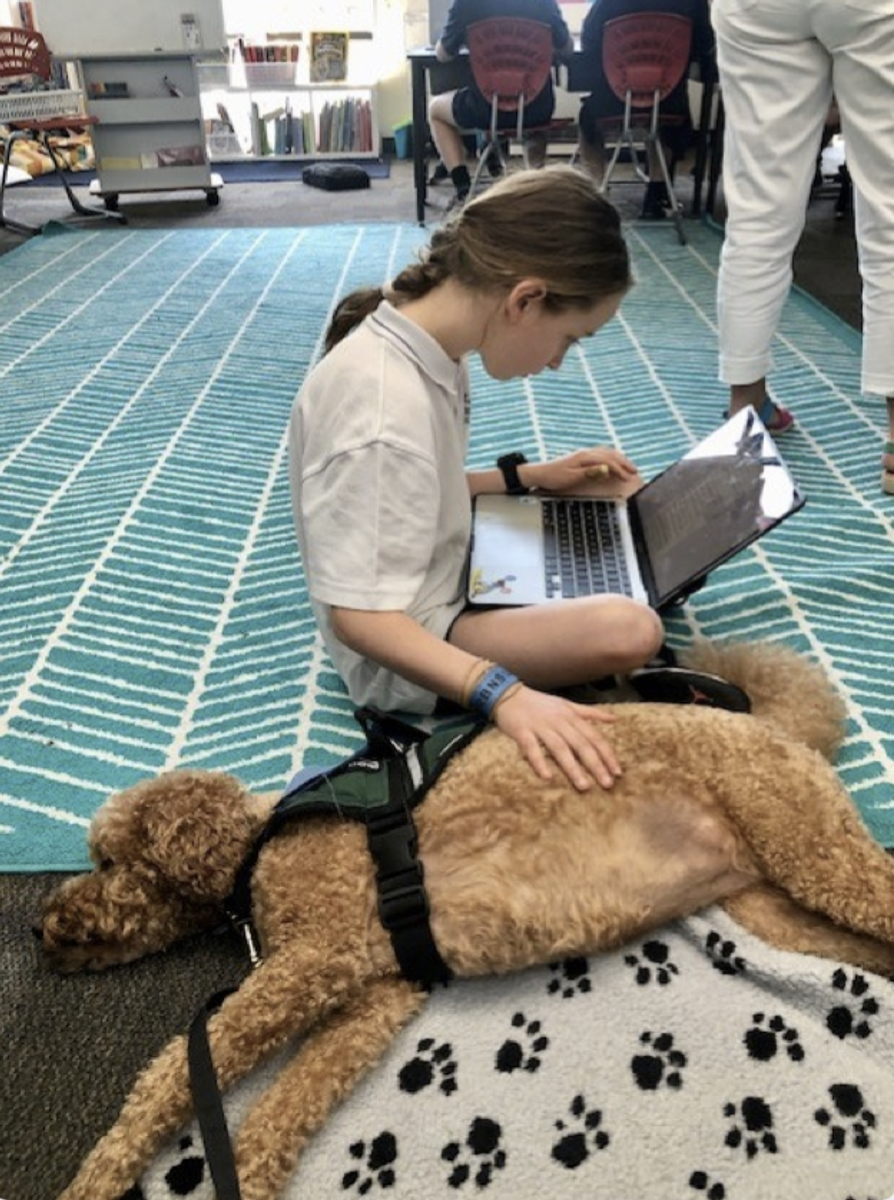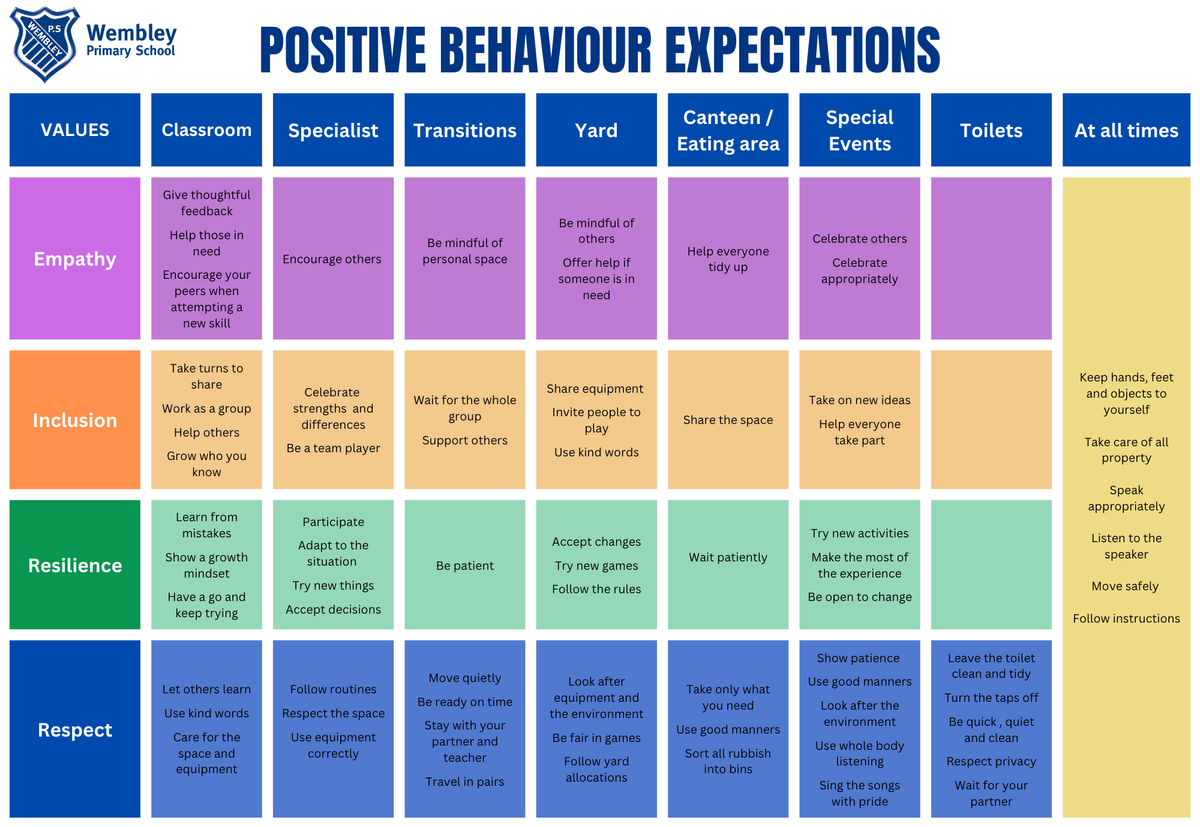Wellbeing
Lindsey - Assistant Principal - Wellbeing and Disability Inclusion
Melanie Irons Assistant Principal - Curriculum, Engagement and Wellbeing
Tom Penberthy - Mental Health and Wellbeing Coordinator

Wellbeing
Lindsey - Assistant Principal - Wellbeing and Disability Inclusion
Melanie Irons Assistant Principal - Curriculum, Engagement and Wellbeing
Tom Penberthy - Mental Health and Wellbeing Coordinator
Wellbeing at Wembley
We hope you all enjoyed the lovely long weekend that we had. The weather was beautiful. We hope you all had a chance to use the extra day to recharge and spend some time outside in nature, ready for the last few weeks of Term 1.
Student Support Group Meetings (SSG's)
We thank the parents and staff members that attended a SSG this week for certain students with Individual Education Plans. We are proud of the growth, improvement and support of all studnets, and thank the parents, staff members and health professionals working in partnership with us.
Breakfast Club
We had some amazing news last week, when we received an email to say that Foodbank had secured a bid for $2000 worth of items from the Good Guys to use on new equipment. We are so grateful to Foodbank for all their support and this made the team's week! We are going to consider carefully what we will buy with this and will let you all know once the decision has been made.


Wellbeing dogs
Both Ginny and River were a great support last week during NAPLAN. They helped to calm many of the students before testing began each morning.
We are working hard in school to remind all children about how to act around both dogs. It can be quite intimidating for them being in the classrooms or in the yard with so many children around. Please can you keep reminding your children about how to act around both dogs, as it really helps to reinforce the message. We are currently finding that lots of children are approaching the dogs together and not giving them the space they need.
The three key rules to remember are:






Disability Inclusion Reform
Each week we will be updating you on aspects of the Disability Inclusion Reform that is currently being rolled out. Read more on the DE website: https://www.education.vic.gov.au/school/teachers/learningneeds/Pages/disability-inclusion.aspx
As a school we have now received confirmation of when our practise Disability Inclusion Profile (DIP) meeting will be run. In a normal DIP meeting the family will be invited to attend, but as this is a practise one it will just be staff from school.
DIPs will always be run by an external independent professional, these coordinators are currently in training and are normally from an Allied Health Professional background.
Attendees required at the DIP:
Lindsey (as Assistant Principal for Disability Inclusion)
Vassie (If Vassie is unable to attend, she will nominate another member of staff)
Class teacher
Parents/Carer
Student (can be in any format - in person, via a pre recorded video, through writing etc)
Sector leader (optional)
Education support staff (optional)
We are still working through our recording procedures in school to continue enhancing our evidence collection.
SWPBS - School Wide Positive Behaviour Support








Little Penguin = Empathy
Platypus = Inclusion
Echidna = Resilience
Green Tree Frog = Respect
The SWPBS team, with input from the rest of the Wembley staff, have created a matrix which states the behaviour expectations for different areas of the school, linking each behaviour to one of our school values. All staff and students are expected to follow these behaviours. Staff will consistently refer to the matrix to reinforce when students display these behaviours, as well as when providing corrective feedback when students do not follow these behaviours. This week, teams across school will be introducing the matrix to their classes and throughout all areas of the school. Over the course of the remainder of this term and Term 2, students will be taught the expected behaviours. This is a crucial part of SWPBS because:
• to learn better ways of behaving, students must be directly taught replacement behaviours, including social skills and appropriate ways of responding
• to retain new behaviours, students must be given specific, positive feedback and opportunities to practise in a variety of school settings
• if we think of behavioural problems as learning errors or social skills problems, the importance of teaching behaviours as an important set of life skills becomes apparent.
We also teach these behaviours because we know that behaviour is just like learning, when we don't know an academic concept we teach it. We therefore need to teach our expected behaviours to ensure that all students have the chance to learn what these behaviours look like in reality.
Towards the end of Term 2 we will survey staff and students to consider the impact the matrix is having and if there are any adjustments that need to be made.

